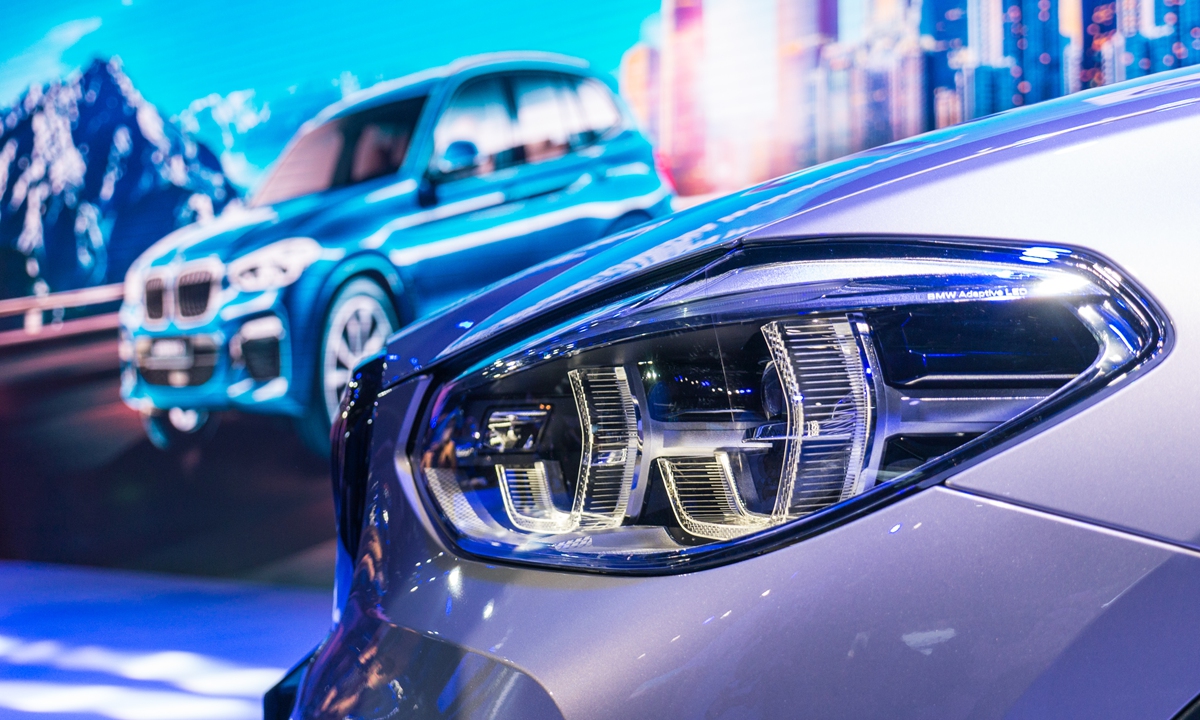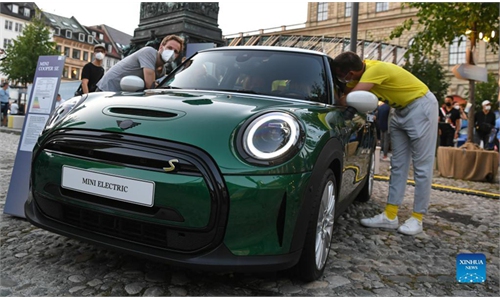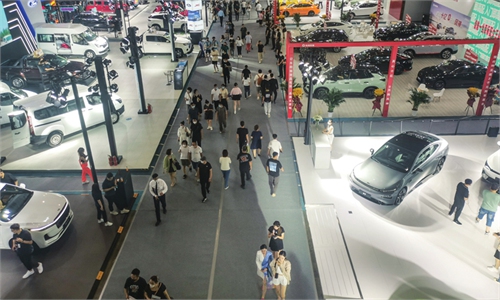
A BMW model on display File photos: VCG
BMW will invest another 10 billion yuan ($1.386 billion) to expand its high voltage battery production center located in Shenyang of Northeast China's Liaoning Province, likely to be the company's third complete power battery center globally, as well as the first one outside of Germany where the company is based, a source from BMW China told the Global Times.
Confirmation came after some overseas reports said that BMW was set to axe all UK production of its electric MINI and relocate to China.
According to a Times report, BMW makes 40,000 electric MINI cars a year at its Cowley factory on the outskirts of Oxford. Production will end next year as part of plans to reshape the carmaker’s line-up from 2024.
The BMW Group nevertheless told the Global Times that the BMW plant based in Oxford will continue to manufacturesome MINI models for the next generation, and that Oxford plays an important role in BMW Group's production strategy, with its high degree of flexibility, competitiveness and expertise.
Cui Dongshu, secretary general of the China Passenger Car Association (CPCA), told the Global Times recently that BMW might have made the decision to cut MINI models productions mainly from the perspective of reducing costs, as the UK is not an ideal place to develop electric cars for high costs and fractured supply chains.
BMW set up a joint venture company with Great Wall Motors as early as 2018 to develop new-generation MINI electric cars. The joint venture, named Spotlight Automotive Ltd, is located in Zhangjiagang port in East China's Jiangsu Province.
A representative of Spotlight Automotive Ltd also told the Global Times that the company's plant is now completing its trial production stage.
BMW is one example of overseas car companies' recent moves to expand investment in China's new-energy vehicle (NEV) market. For instance, German carmaker Volkswagen recently announced that its software unit will establish a joint venture with Chinese technology firm Horizon Robotics, as the company aims to strengthen its tech presence in China, its biggest market.
Daimler Greater China, a subsidiary of Mercedes-Benz Group, also signed a memorandum of cooperation with Tencent Cloud Computing Beijing to jointly develop self-driving technology in China.
Zhang Xiang, a research fellow at the Research Center of Automobile Industry Innovation of the North China University of Technology, said that overseas car companies' decision to increase investment in China is partly a result of China's complete automobile supply chains and advanced car production technologies, which makes it easier and cost effective for them to produce cars in China.
"Take BMW for example, if it runs factories in other countries but exports most of its products to China, that would increase costs like shipment costs, customs tariffs and so forth, thus slashing their products' price competiveness," Zhang told the Global Times.
On the other hand, many overseas markets lack complete car supply chains, which means that their local car factories have to import car parts from countries like Germany or even China. That would not only increase costs, but prolong the car production cycle, Zhang said.
Global Times



